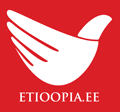From the port of Tallinn
We set out on our journey from Tallinn to Sweden with 30kg travelng bags. All of it seemed very funny, since the weight and the value of the luggages were somehow contrary to the European requirements. There was clothes, which all of us have in plenty, and a lot of sheets meant for wrapping babies, pencils and chocolate for personal use.
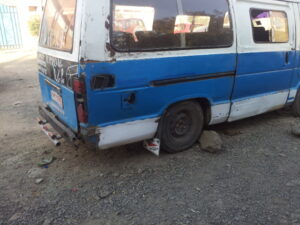
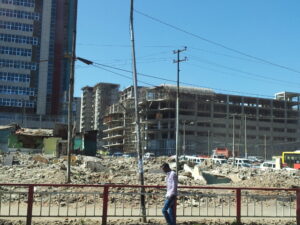
Reaching Ethiopa, however, everything instantly had a completely different value. Every single T-shirt or a pair of pants in our bags is invaluable in local context, not to mention the aid packages for the newborns. Edible chocolate that is under five Euro is hard to find. Every move we made with our heavy and valuable traveling bags created unexpected hurdles and also had some noticable charge. The minibuses we usually tako to Soddo didn’t fit our luggage. Either there was no roof rack or the bags were to big to shove them under the seats or the charge for them were higher than for a passenger. We waited two days for the solution. Took rest at Karin’s place who is a European Union diplomat with the African Union. Thanks to her driver it was possible to look for transport from all over town with our burden.
In the end somebody from Soddo came up with a completely new solution – an ambulance. Italian tourists who had been travelling from south towards Soddo had had an accident and were transported to a hospital in Addiss. The driver had originally planned to head back south alone. Hauling our huge suitcases to the car, the local helpers placed our luggage on the loose foam matresses. The loads swaying overhead it seemed that we are not going to make the journey to Soddo alive. Together with Hillevi we managed to draw out some mattresses and put them on top of the luggages and so organise a safer seating for ourselves. Once the driver and the passenger took a look to the back and saw this they, incomperhensibly to us, decided that something is deeply amiss now and it is better to stop the car and re-evaluate our safety. They repeatedly asked if we are okay. Again it only seemed safer to us, if there were no suitcases hovering above our heads. We began to drive out from the city with the sirens blaring, our faces to the stretcher on top of which were the suitcases and the matresses. Conversation was difficult since the speed was high and the road was full of donkeys and sheep so all efforts were put towards keeping the breakfast in. By common accord we fortunately skipped the lunch as well to reach Soddo faster. The whole ordeal lasted only four hours which is two to three hours less than on previous occasions.
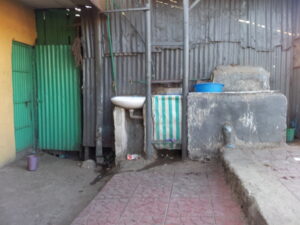
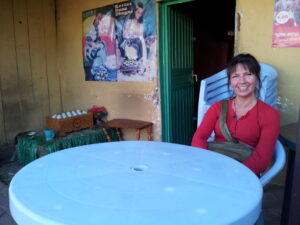
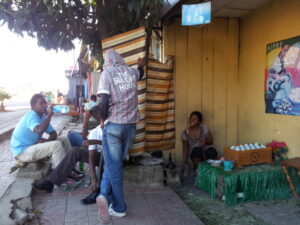
In Soddo again
Africa leaves controversial feelings into a white persons soul: a sad note of poverty, diseases or the life there seems entirely sincere, untainted and real. Going to Africa while worn out from the pace of european life the local sincerity takes me to another vibe. It seems as if everything that has any importanace in Europe is completly irrelevant here. These feelings arise especially when you almost can not even breathe beacuse of the accumulating heap of things and then suddenly you find yourself in Africa. Two worlds that have met thanks to people on the move enrich our knowledge and and keep on doing so until we are willing to understand everything that is different to us. Coming here eases you because you see the same world from a completely different perspective and if you are ready to alter the meaning of such words as „time“, „promise“, „honesty“ and „ethics“. Considering all of this we started prepareing the school lunch which according to local information is more expensive than last year. With a bit of changes in the menu we got the pea-stew done. Now to 60 children because we dont have to pay rent for the rooms anymore. Anyhow , the children loved it, and we had some as well. The prices are the same changing only a little bit according to season. By the end of the first day the horror stories about African diseases and corruption had also reached our home. One of our students came to school barely being able to stand. Previously we had used the private clinic method when dealing with illnesses since it wasn’t far from our home. The situation seemed dire and I went for the same clinic once again. Service there was good and quick: within twenty minutes it was clear what the problem was and what needs to be done. This time we found that the doctor familiar to us had moved further away with his clinic. Because of the bad situation of the pupil I decided, without asking the prices, that they can start running the tests. I ran to the bank to exchange money. Coming back, it turned out that it was malaria, typhoid and amoebas. Price of the medication was said to be 300 birr which is 20 times higher than normal. If malaria treatment is free of charge in a government hospital it is certainly not in a private clinic. Previously the cost of our medical care has been lower. I grabbed the test results and raced over to a pharmacist I knew for consultation. He explained the situation a bit, that the medication is too expensive, he also gave me a new price straight away which was ten times less. All this talk about illnesses cubed seemed odd to me. Two years ago all of us, the Estonians, we felt what it is like to live with amoebas in your stomach. I could not imagine how you can march five kilometers to school with malaria, typhoid and amoebas, barely being able to stand. This doubt made me run another set of tests on the child. I didn’t miss. Fortunately it was only typhoid and the doctor from the private clinic was a businessman who just in case added a couple of diseases to lighten the wallet of a white person. Learn to forgive – that was the motto of the day.
MERLE
